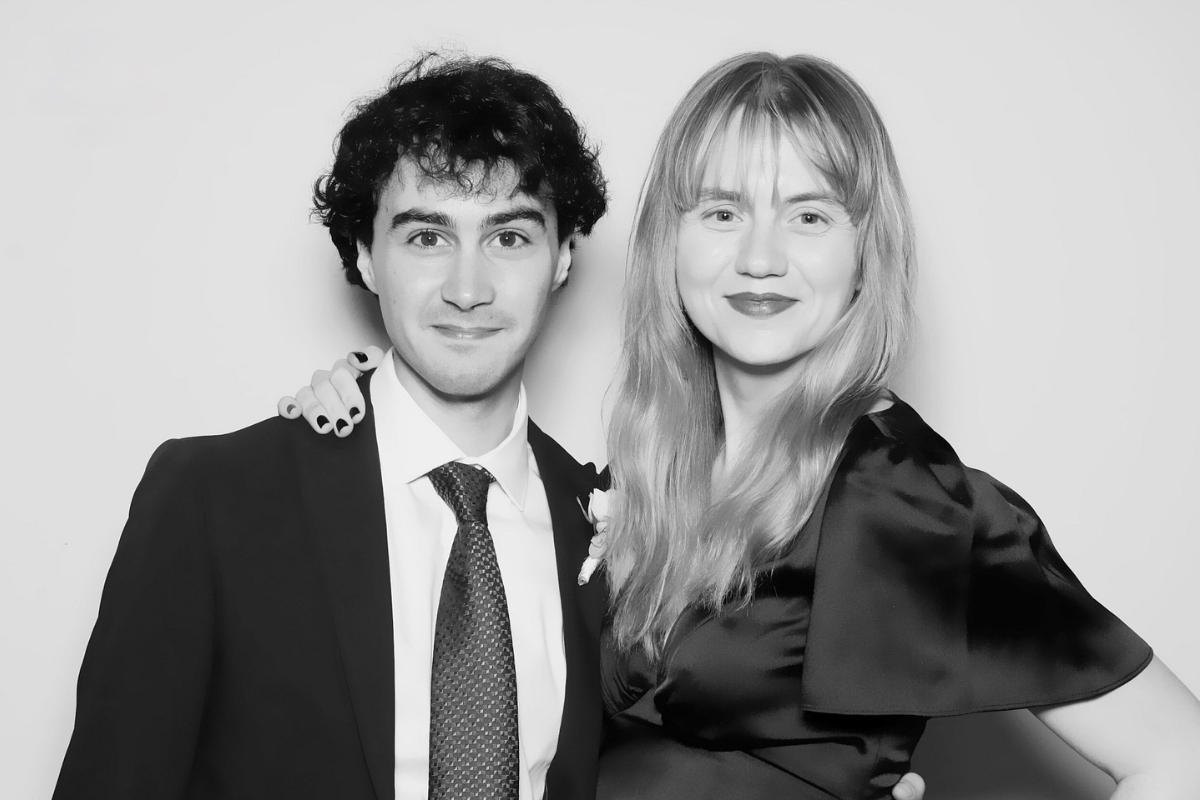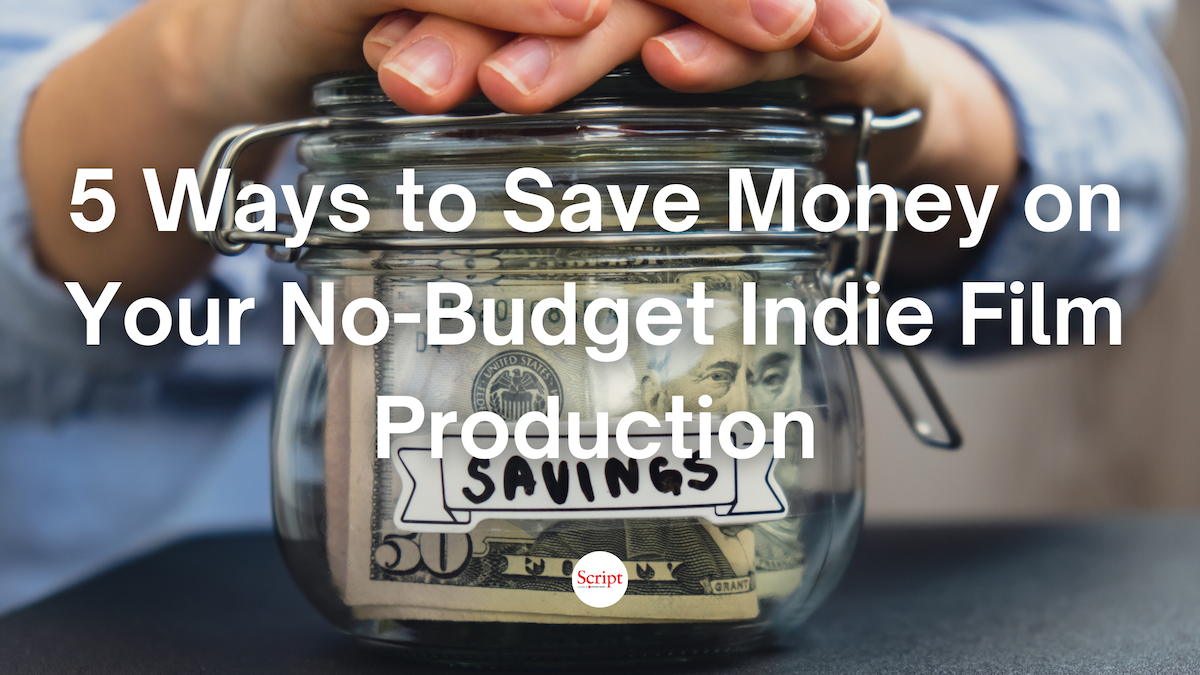TRUE INDIE: Breaking in Remotely—Interview with Screenwriter Amie Charney, Harlequin Creator Fund Recipient
Hoping to break into screenwriting from outside L.A.? Rebecca Norris chats with screenwriter Amie Charney, the first recipient of the Harlequin Creator Fund for television writing, about developing her pilot with Harlequin and eOne, breaking in remotely from San Antonio, and why it’s never too late to chase your dreams.
In this series on writers breaking in from all around the U.S. (who embody that bold, true indie spirit), I’m delighted to be highlighting screenwriter and novelist Amie Charney. Amie is the first recipient of the Harlequin Creator Fund for television writing, and developed her original pilot, Cape Disappointment, together with Harlequin and Entertainment One. She received her MFA in Creative Writing from the University of California Riverside Palm Desert and is the director of creative writing for the North East School of the Arts (NESA) in San Antonio, Texas.
I had the pleasure of talking with Amie about her adventures in a military family, what led her to screenwriting, working with Harlequin and eOne, why you should tell the stories you’re passionate about, why it’s never too late to go for your dream, and what advice she has for screenwriters looking to break in from outside of Los Angeles.
Rebecca: You’ve had an amazing journey living around the country as a military family. What motivated you to become a screenwriter, and also to settle in San Antonio?
Amie: I am a proud Marine Corps wife. My husband Michael was a F18 Hornet Naval Aviator, essentially Goose in Top Gun. We spent over twenty years on active duty, eight deployments (seven of which were combat tours), and have traveled the world. When he recently retired from the Marine Corps we chose to move to San Antonio, Texas. Our two college-age children are Texas A&M University Aggies, and it felt like home as soon as we arrived. San Antonio is a three-hundred-year-old city and has a rich cross section of cultures that weave into one of the prettiest and colorful cities in the world. I have also discovered a deeply talented and supportive writing community here who have opened their arms to me.
So, here we are in San Antonio, and I’m giving it my all. I keep reminding myself there is no expiration date on good storytelling. I’m actively developing new material and I’m also the director of creative writing at the North East School of the Arts. I teach poetry, fiction, playwriting, screenwriting, television writing, publishing, and editing over the course of four years. It’s been incredibly rewarding to see my students’ writing grow. I remind them every day to write their excitement, and they encourage me to do the same.
Ironically, we lived in Southern California for a good chunk of our Marine Corps career. Michael was flying out of Miramar in San Diego, and we lived a couple of hours from LA. I’ve always considered myself a storyteller, but it wasn’t until our last few years in California that I got up the courage to invest in that passion. I’d been writing for a number of years, having some success with publishing in smaller publications and journals, but I didn’t feel I had the bandwidth to really go for the dream. It’s taken a while to look back and forgive myself for not “going for it” sooner. Now I realize it wasn’t the right season in life to do it; I needed to learn more who I was and time to find my voice, and that’s OK! I was busy raising our kids, volunteering at a lot of charities, navigating back-to-back combat tours, eventually became a high school teacher when my own kids headed to middle school…trying to find things that made me feel essential and fulfilled.
My wonderful husband came home between deployments at one point and said, “All the stuff you do is awesome, but it’s not what matters most to you. Go for the big dream.” And so, I did. I got an MFA in Creative Writing. I chose the University of California Riverside Palm Desert Low Residency program, and they chose me back. I picked UCR PD because they have incredibly generous and supportive professors who are all currently working writers and leaders in their fields. They don’t just teach, they do, and do well. It was during this time that I found a passion for screenwriting.
I wrote a novel, a play, and a screenplay while I was in the program, but in scriptwriting I found my voice. I was also the first student to do a thesis and grad lecture on romance writing. What I love about the UCR PD program is that they said, “heck yeah,” we’d love to see a thesis on that. Getting an MFA might not be the right path for everyone, and you can certainly “make it” without one, but it was right for me. I needed to have accountability and mentorship, and most of all, I needed to find my writing tribe.
Even though I’m alumni now, the faculty and friends I’ve made there continue to cheerlead my work and support me. As a perfect example, over quarantine, I was trying to keep my high school writers engaged and hopeful. I sent out an SOS to my UCR PD family, and they all volunteered to Zoom in and give writing masterclasses to my students. I can’t tell you how much that generosity meant to all of us.
Rebecca: Please tell us about the Harlequin Creator Fund/Feel Good Project, and how your pilot got selected for a development agreement with Harlequin and eOne.
Amie: I am an unabashed romance fan. I love reading it, writing it, teaching it. I’m a sucker for HEA (Happily Ever After) and love feel-good entertainment. So when Harlequin announced the Creator Fund, a brand new incubator to develop female storytellers in novels, screenwriting, and television writing, I jumped at the chance to apply.
Over the past seventy years, Harlequin has committed to developing female storytellers, no matter where they live. It’s awesome that they are taking that dedication and using it to launch female scriptwriters. The fact they teamed up with Entertainment One to mentor the projects through development was huge. I’d started developing a story in my MFA program that I felt would work best in television because the setting of the story is a huge character in itself. It’s frightening sometimes to put your work out there, but I took the leap. They had more than three hundred applicants from the U.S. and Canada. It was a long process and I’d pretty much written it off, and then I got a phone call that changed my life.
Rebecca: What is the premise of your pilot, Cape Disappointment, and what made it a good fit for Harlequin/eOne?
Amie: I love telling stories about characters, especially women, discovering how to live life on their own terms. It takes a lot of courage and determination to carve a path that may run counter to everyone’s expectations of who they think you should be. It’s scary, but so fulfilling when you finally collide with who you were created to be. This is something that does not just happen in your twenties, I think we iterate and reiterate over many seasons of our lives.
My daughter and I love shows like The Gilmore Girls and Hart of Dixie. We binge them over and over again. So, when it came to writing the pilot and developing the story, my dream was to write a show I wanted to see. A show that is warm, funny, a little irreverent, and pure emotional escapism. A show that I could sit on the couch with my daughter and her grandmother and bond over together. That’s the story I want to watch and write.
Cape Disappointment is a fish-out-of-water dramedy series about a best-selling YA fantasy writer whose life has “gone to shit”. Desperate for inspiration, she visits the small Northwest fishing village she randomly googled for the novel’s setting only to find it overrun by cos-playing teens and rabid fandom at war with the eclectic townies. Despite being the world’s worst fixer, she tries to right the wrongs her books have caused, but each problem she tries to solve creates a blizzard of new ones. And, of course, since I’m a romance fan, there is also a swoon-worthy semi-reformed bad boy who blames her for ruining his town. I pitched it as the sass and town hi-jinx of Hart of Dixie meets the quirky fun of Northern Exposure. Harlequin and eOne were looking for a feel-good story from a unique point of view, and Cape Disappointment is certainly that.
This story is also close to my heart because a big part of my life was spent in the town I based Cape Disappointment on. It is a salt-of-the-earth town where everyone knows everyone, or at least knows if you don’t belong. It’s a community built on second chances, where people escape to heal or start with a clean slate and know how to take care of each other. And it’s full of quirky things like the world’s tallest crab pot Christmas tree, the world’s largest oyster frying pan, and the world’s shortest fireworks display. My city-girl protagonist could not be farther out of her depth in hip-waders to harvest cranberries or chumming the water for fish (meaning barfing over the side of the boat), or trying to talk suicidal elk out of hitting her rental car.
Rebecca: What was the process like working with execs to develop the project?
Amie: Being the first recipient of the Harlequin Creator Fund for television writing was a huge validation of my work. The development team at Entertainment One is one of the best in the business, and Harlequin has nearly a century of creating female powerhouses. It has been illuminating walking through the development process of an original television show with that caliber of team championing your work. Within a short time, I wrote a pilot, a treatment, all the pitch materials, and episode arcs for the story bible. I got to pitch a room of executives that loved the work.
The hardest part for me has been that I was “in the room” pitching this show literally the day before quarantine hit, and everything shut down. It took a lot of wind out of my sails, and it’s been a challenge to get things moving on the project again. But Harlequin’s Creator Fund grant took some pressure off but also added it in a good, accountability way. I wanted to put my best foot forward, and pitch finished work, so I used some of the grant to work with a trusted mentor in polishing everything before I went out with it. It was an important investment in myself and my work, and I would do it again any day. Even though I had mentors through the Creator Fund, I needed to have an expert I could ask the dumb questions to, that I knew was on my side through the whole experience.
Between the mentorship of Entertainment One and Harlequin and my own writing coach, I feel very prepared and ready to sell this show. It’s awesome that Harlequin has also committed to helping me find the right home for Cape Disappointment, which is a huge benefit of the Creator Fund incubator.
Harlequin has also given me the opportunity to mentor and encourage other female scriptwriters. This has been an incredibly rewarding part of the process.
Rebecca: Since the pandemic, doors have opened for more screenwriters to break in outside of major markets, thanks to advancements in technology like Zoom. How have you been using technology and online resources to further your career?
Amie: If there is a silver lining to the pandemic, it’s that the industry is discovering that great storytellers live in a lot more places than LA. I hope this is a permanent mind shift. I think we have realized that the work of writing and being “in a room” can happen from practically anywhere. After each great tragedy our world has experienced over the eons comes a renaissance of ideas, art, and technology. I can’t wait to see our storytelling art forms flourish as we embrace new voices from all over the world to our screens and pages.
Another great development was that I’ve been able to connect and build friendships with writers from all over the world. Writers are generous people, and there has been this surge of sharing time, talent, and resources with one another like never before. I’ve also been able to take advantage of writers’ events and gatherings online that I’d never be able to in person. I spent nearly every day this February attending the virtual London Screenwriters Festival. I’ve been to three virtual residencies from my UCR MFA program. I’ve met industry leaders through Zoom meet-ups and pitch fests. I’ve always wanted to write Hallmark Christmas movies. I was able to connect over Zoom with a whole group of holiday movie screenwriters ranging from multi-produced to aspiring and form a bi-weekly writers critique group that, nearly a year later, is still meeting and helping each other.
I’ve also been taking advantage of the online tools available to screenwriters. I joined IMDB Pro to find and pitch producers that love the genre I write. This summer holiday, I’m putting my work up on Inktip, Script Pipeline, The Black List, and Stage 32. I’ve been participating in Twitter pitch rooms for several years now, but I’m also excited to start using Virtual Pitchfest for my scripts.
Rebecca: What advice would you offer to other screenwriters looking to sell projects and break in from all around the country?
Amie: So there are three core principles of writing that I teach my students, and try really hard to live by. I think these especially apply to writers who live outside a major market.
First, people are always saying this industry is all based on luck and timing, and if you don’t live in LA or New York, neither will find you. I tell my students that luck is where timing meets preparation. Stop whining and do the work and keep doing the work. The novelist Philip Roth said “the road to hell is paved with works-in-progress,” so you must finish what you start. If you keep writing (and finishing your work) and continue to take advantage of all the platforms open to you to pitch on, eventually something will break. The challenge is: will you be ready when that moment opens to you? A well-written kick-ass story will always make someone sit up and pay attention, but when they say, “Yes, send it,” you’d better have “it” to send. And, you’d better have more than one finished project, because the follow-up question is always, “what else do you have?”
The second thing I tell my students came from the co-creator of Black Mirror, Charlie Brooker. You only have two times in your career when you can write what you want—when you’re a nobody just starting out, and when you’ve finally reached a level of success that people will pay for whatever you want to write. So, keep your story receptors open to the universe and write your passion. Write your enthusiasm, and about what interests you, because when you finally break-in, it might be a while until you can again.
The last thing I tell my students is the most important piece of advice. It takes guts to put your stories out on the line. You must find a writing tribe. The act of writing is largely solitary, but the triumphs and challenges are richer shared with others. Assembling a tribe has become easier with social media, Zoom, and other digital platforms. So don’t live in isolation: reach out. Every break I’ve gotten so far has come from other writers sharing their knowledge and resources with me. The chance of getting your stories out there is hard enough, and life is way too short, so be generous with your time, talent, and treasure. One of reasons I want to “break in” is so that I can help others do the same; to see my writing friends and students find success would be a rich reward. Kindness will always come back to you. If this pandemic has taught us nothing else, may it be this.
Learn more about Amie and her work at her website: www.amiecharney.com, or follow her on Twitter at @amiecharney.
Learn more about the craft and business of screenwriting from our Script University courses!
Rebecca Norris Resnick is a screenwriter, filmmaker, instructor for Writer’s Digest University, and columnist for Script Magazine. Distributed features include Cloudy With a Chance of Sunshine (Indie Rights and House Lights Media) and short films On Becoming a Man (Shorts International) and Toasted, which won the Canadian Film Centre’s ShortsNonStop competition. Rebecca’s films have screened in festivals worldwide including Cannes, Dances With Films, Hollyshorts, Manhattan Film Festival, Breckenridge Film Festival, and the Julien Dubuque Film Festival, and have won and been nominated for numerous awards. Rebecca is also an alumna of the ABC/Disney Television Discovers program, where her script Misfortune Cookies was performed in both New York and Los Angeles. When not working on her newest project, Rebecca stays on her toes chasing both her adorable daughter and her tuxedo cat, Sox.
Learn more about Rebecca at rebeccanorrisresnick.com.







